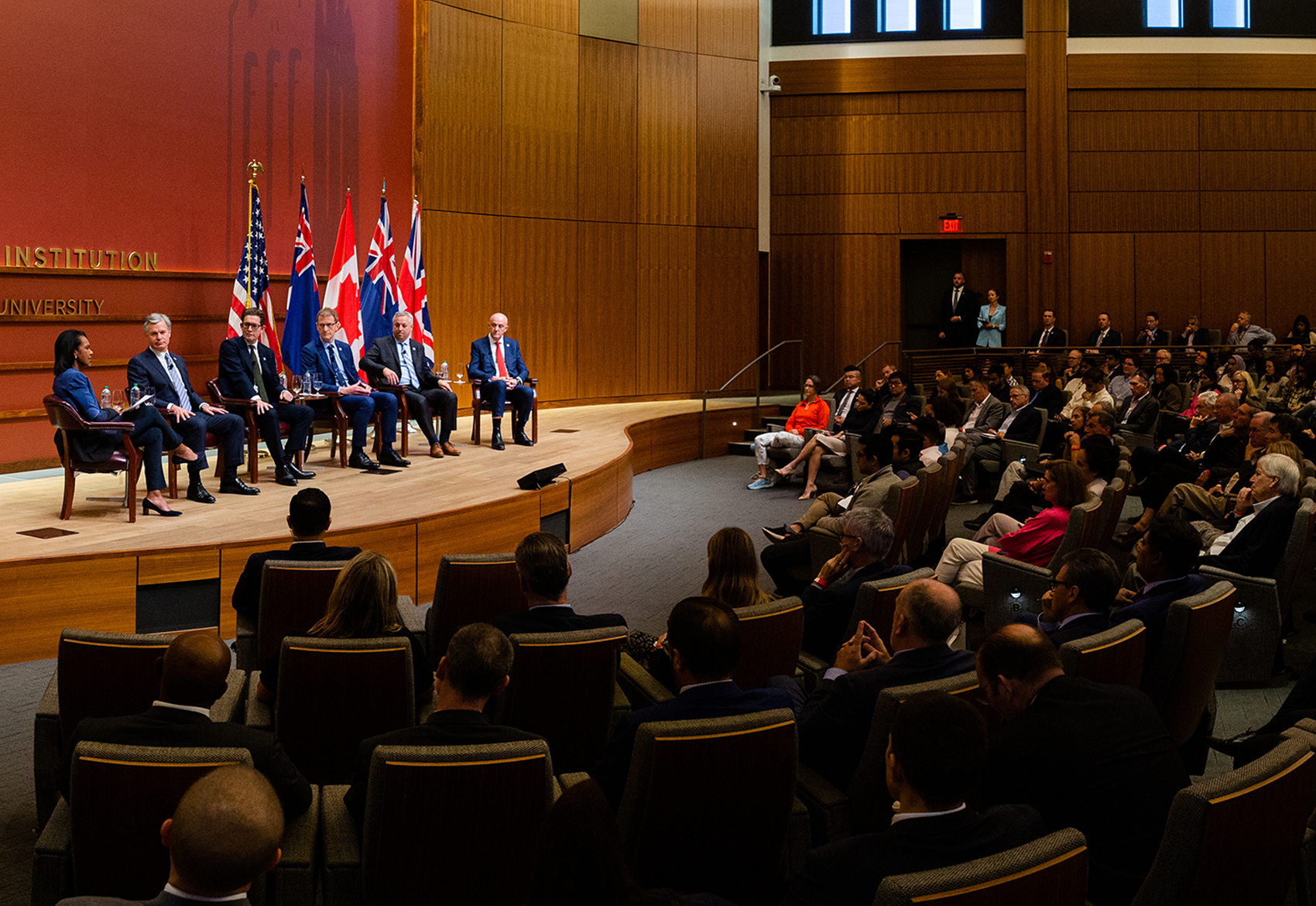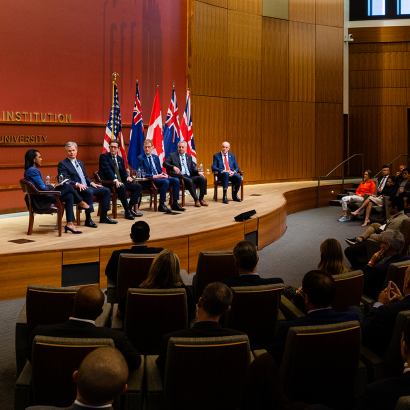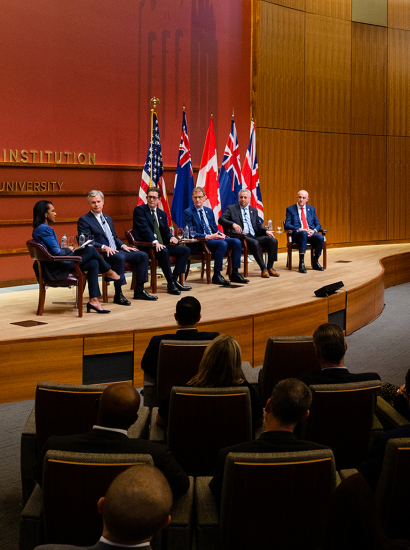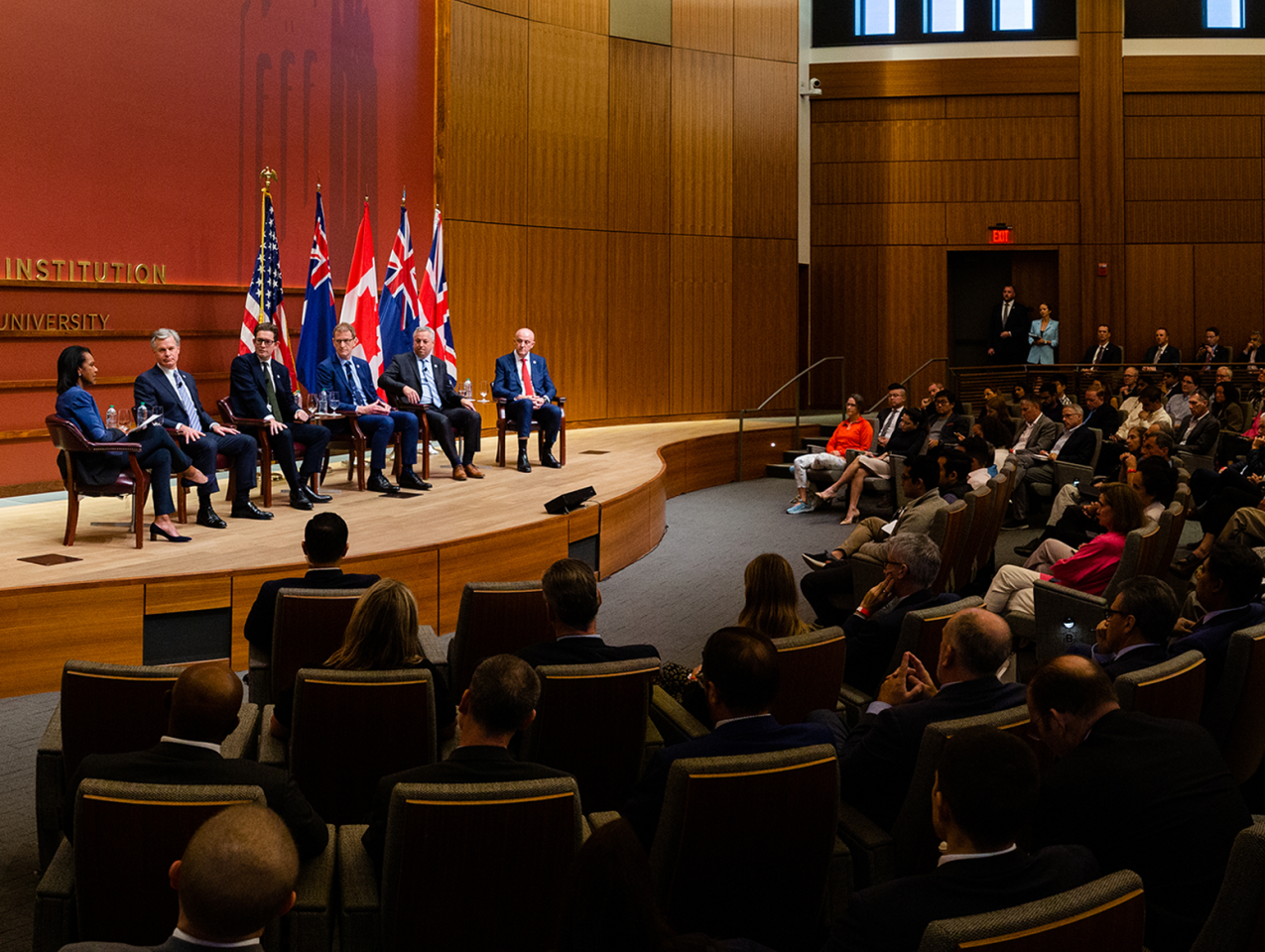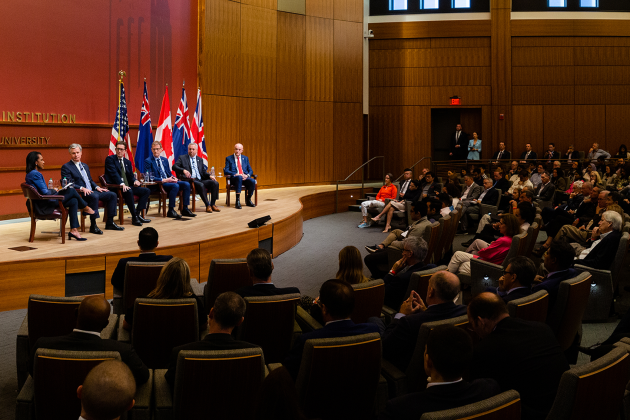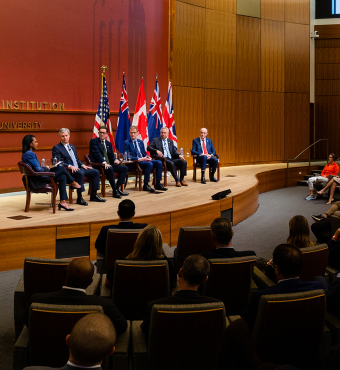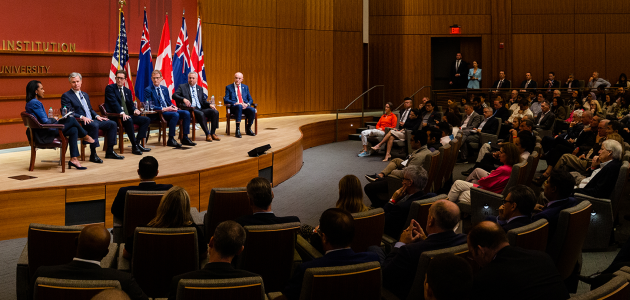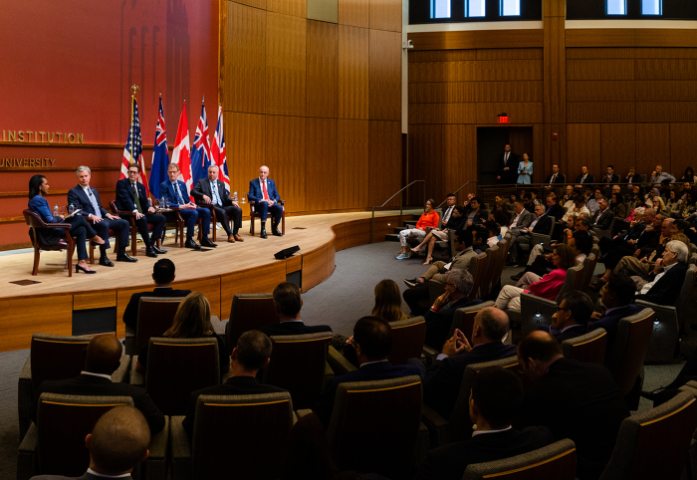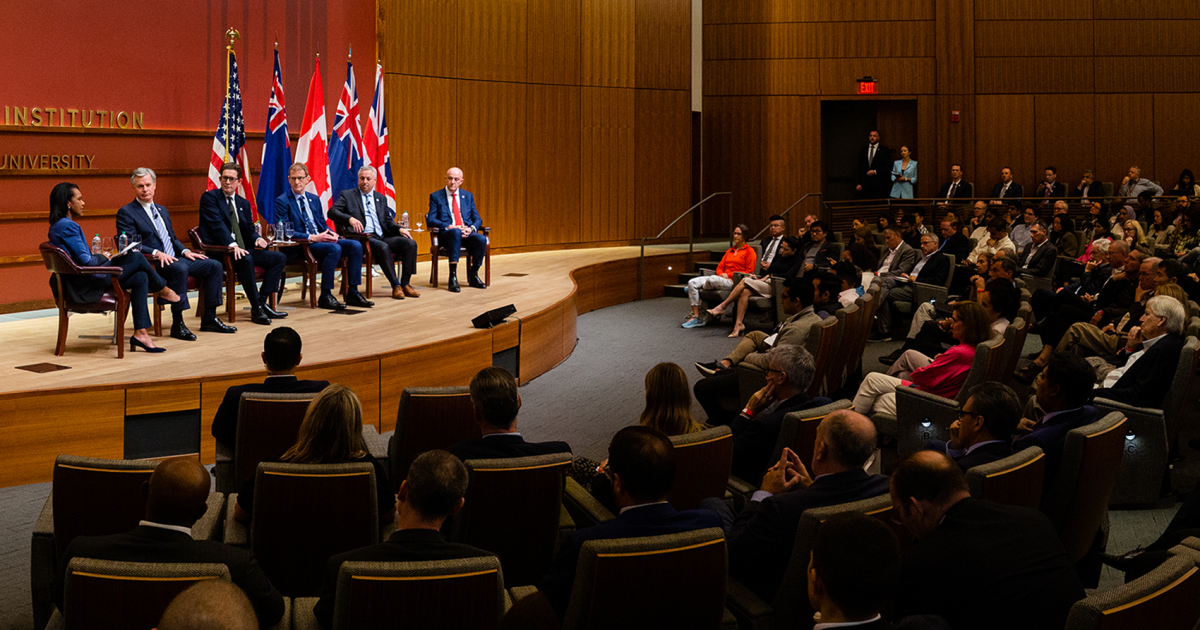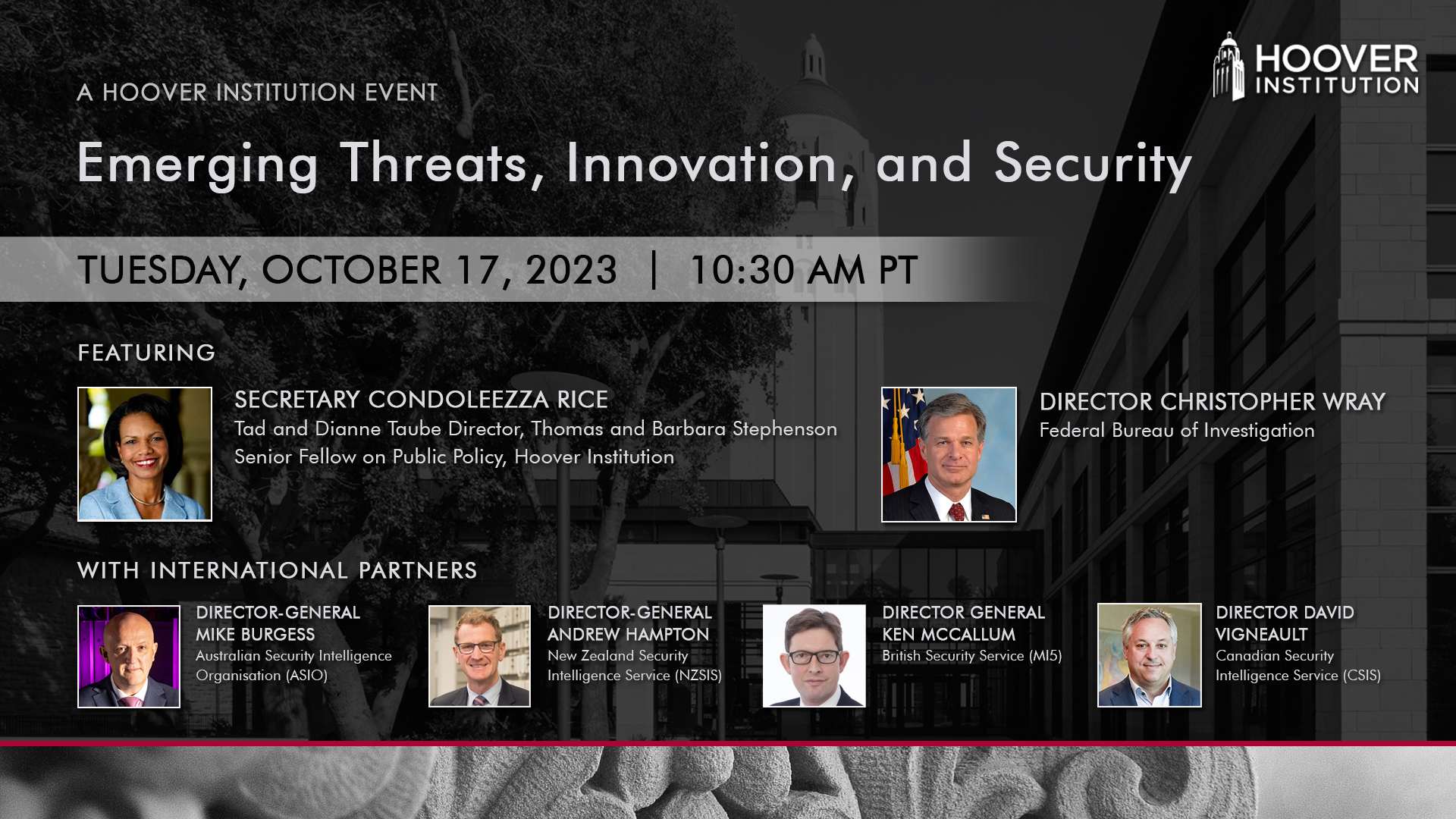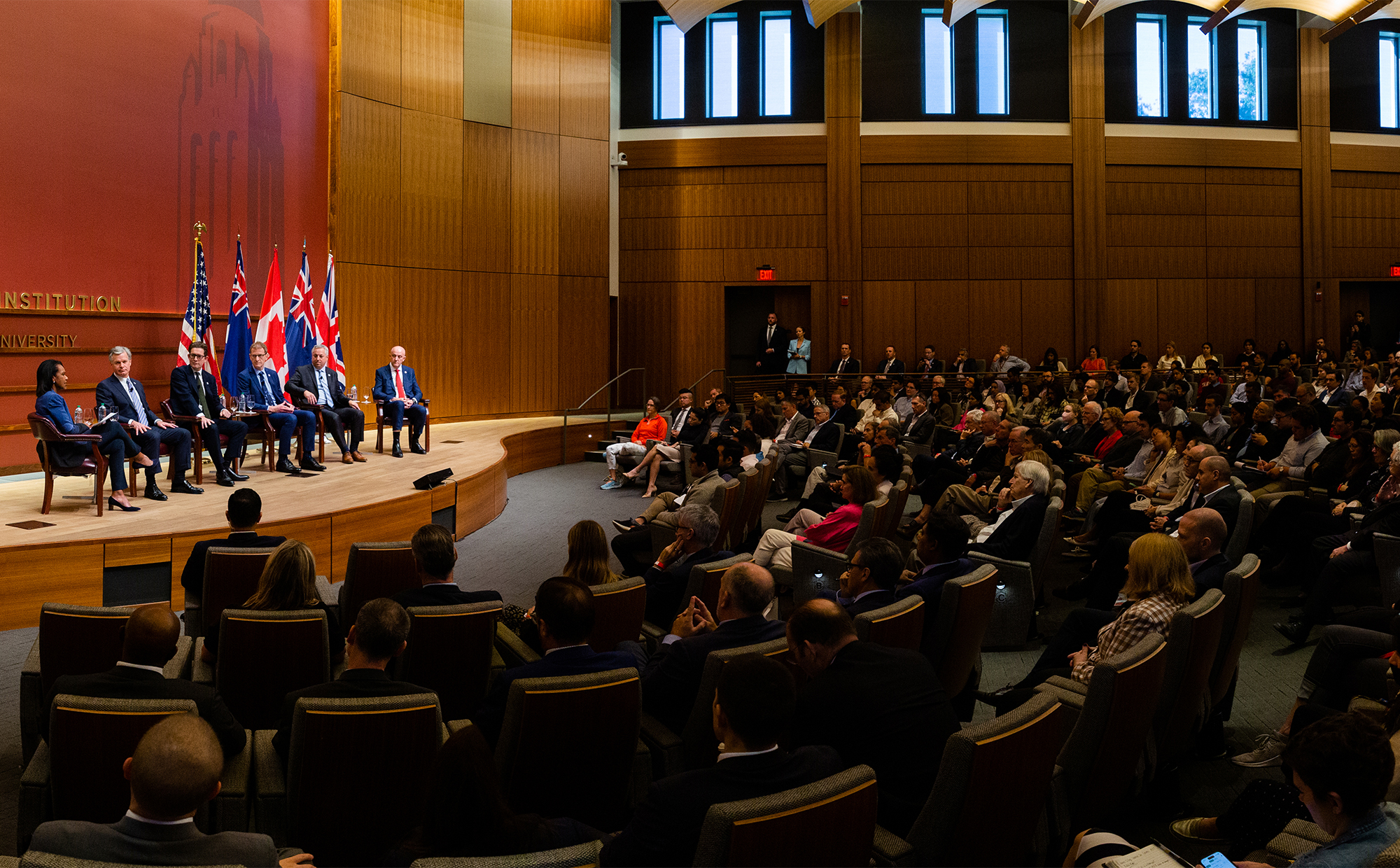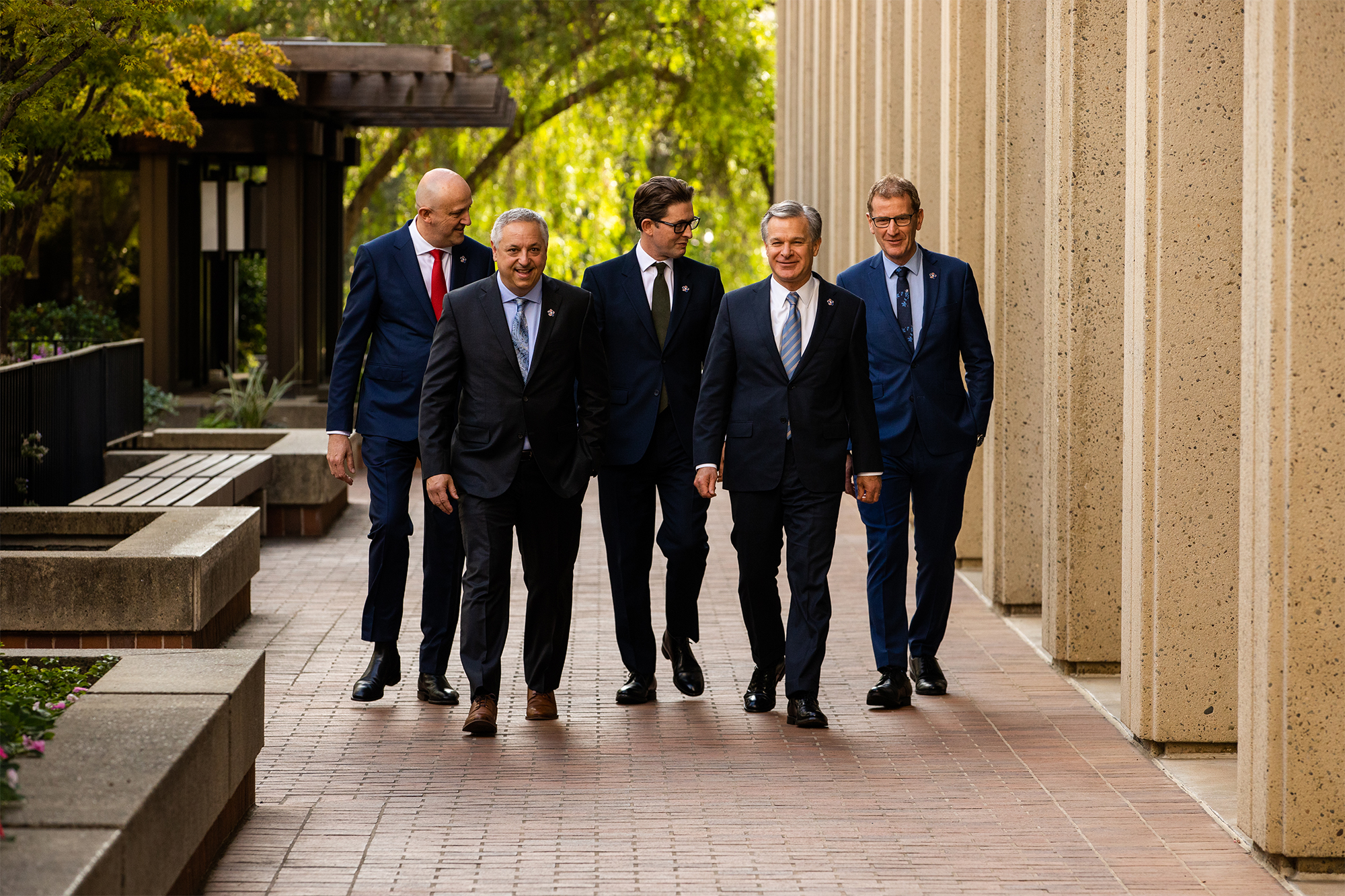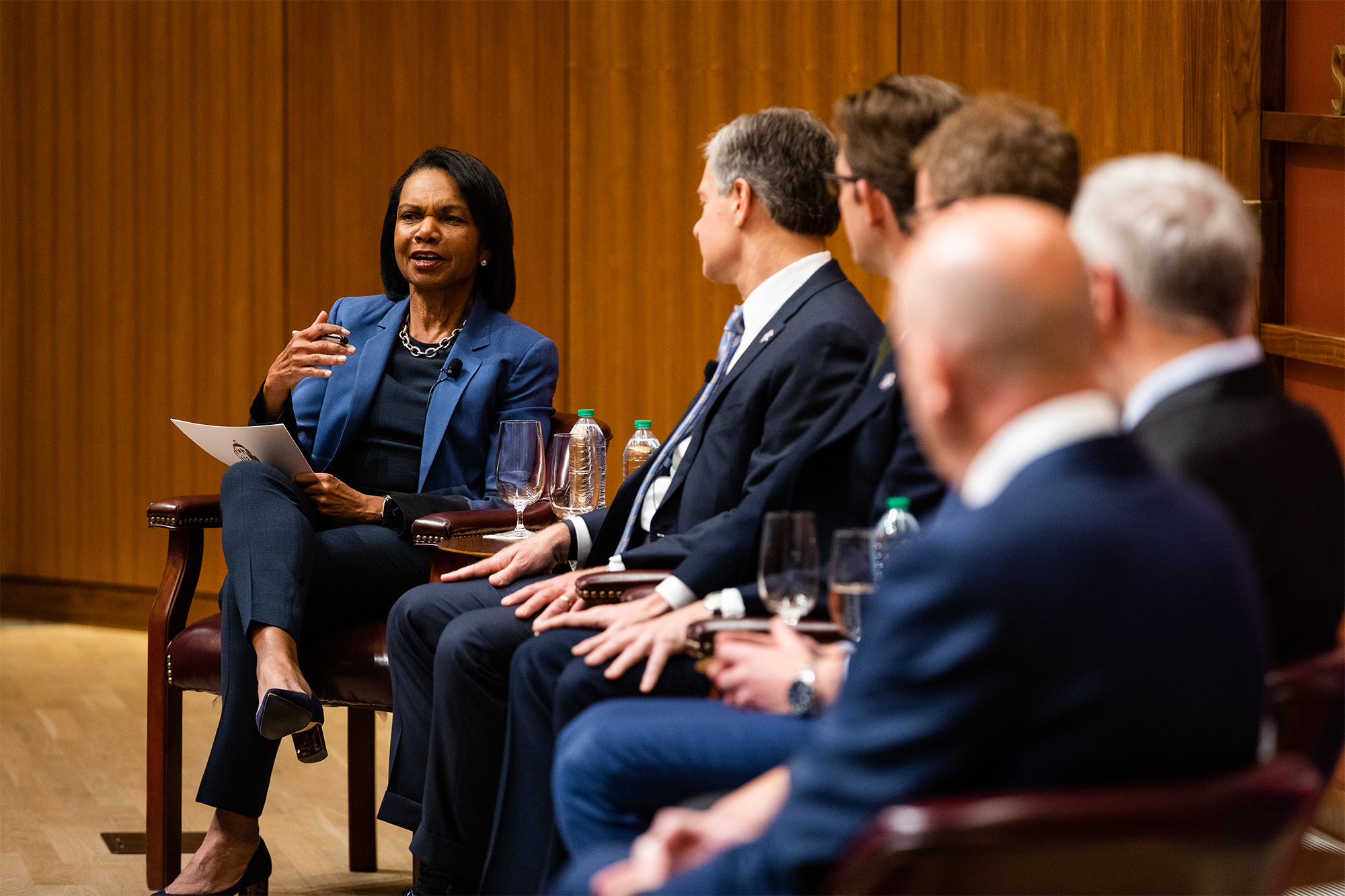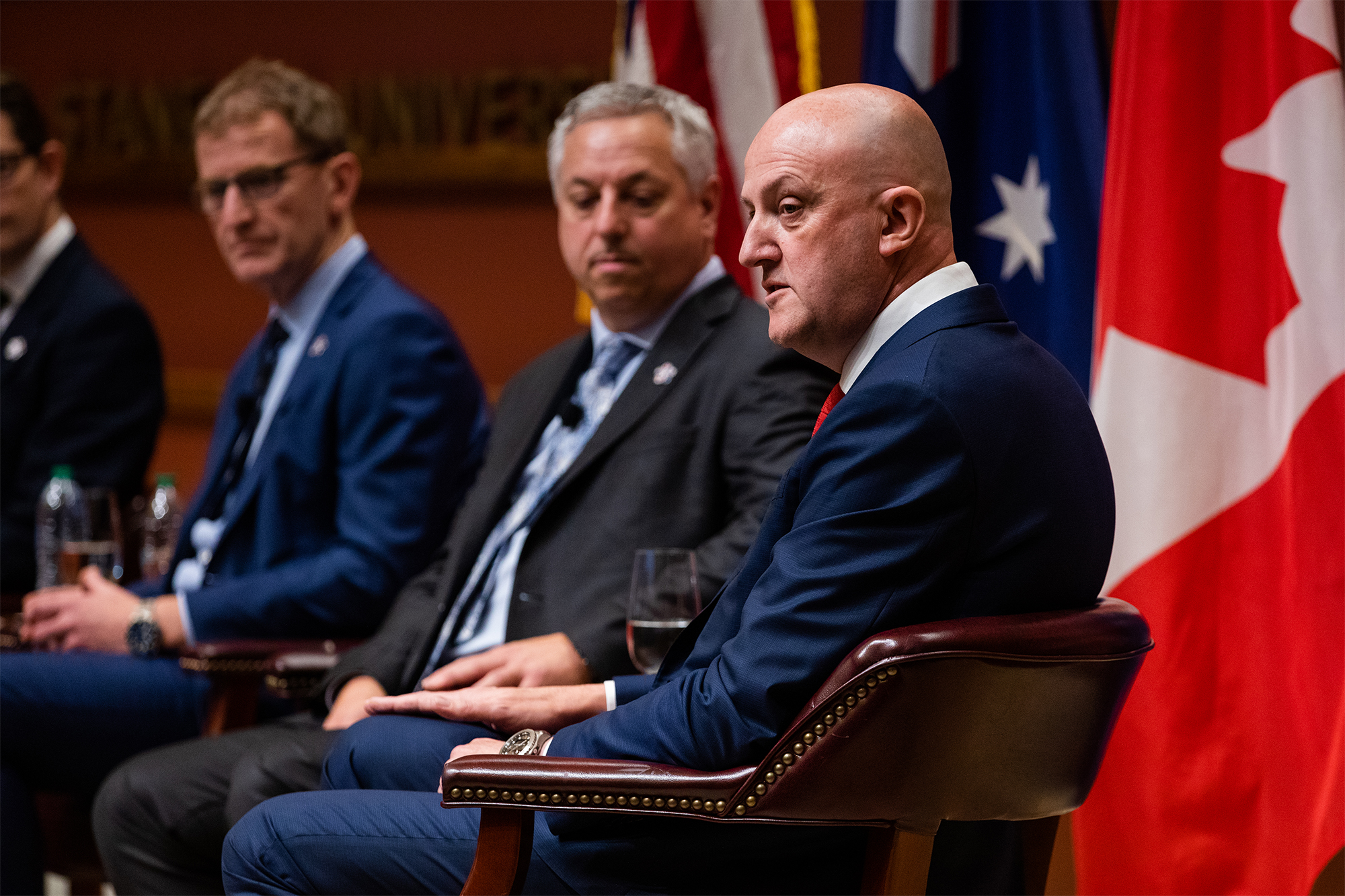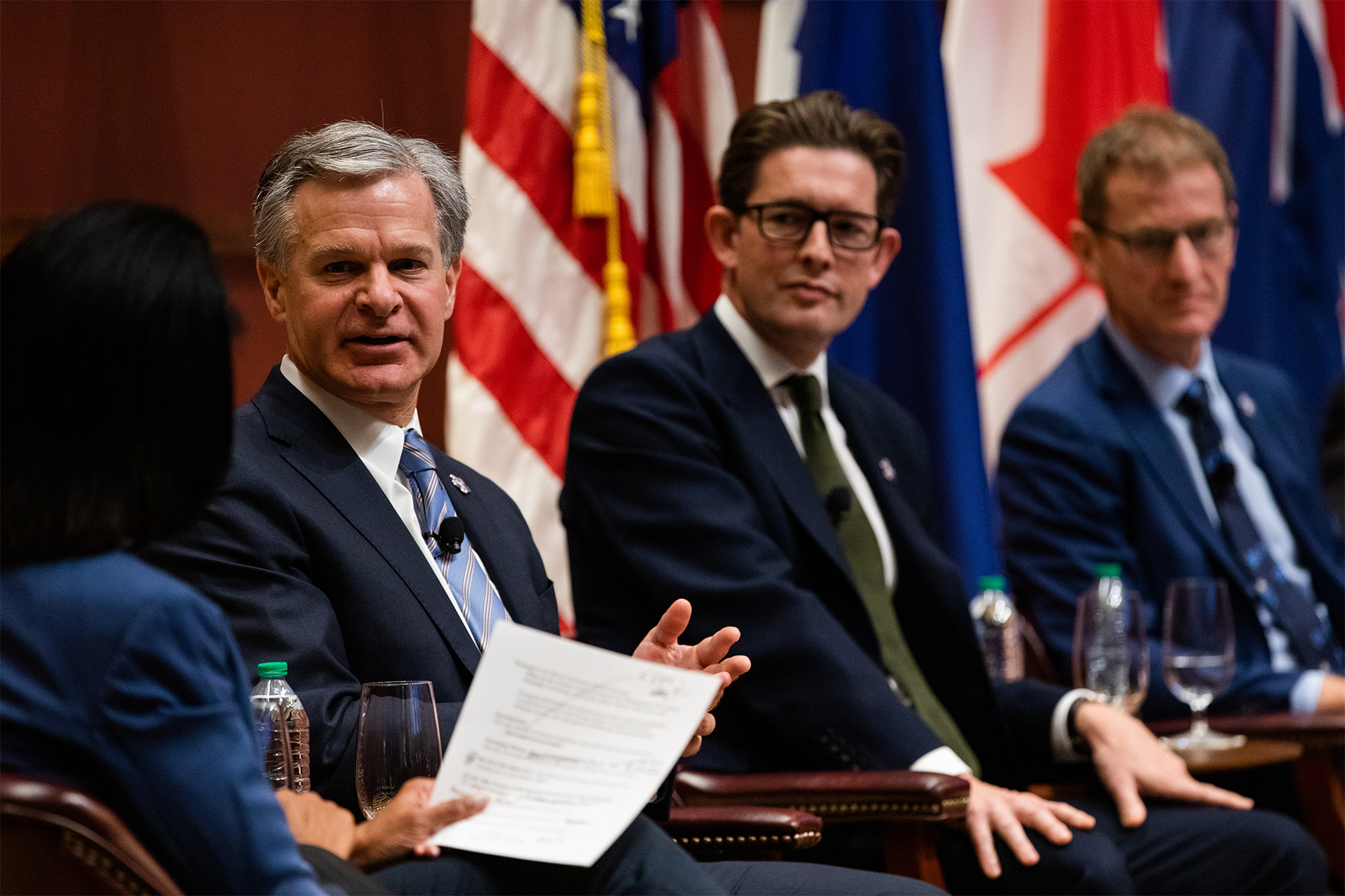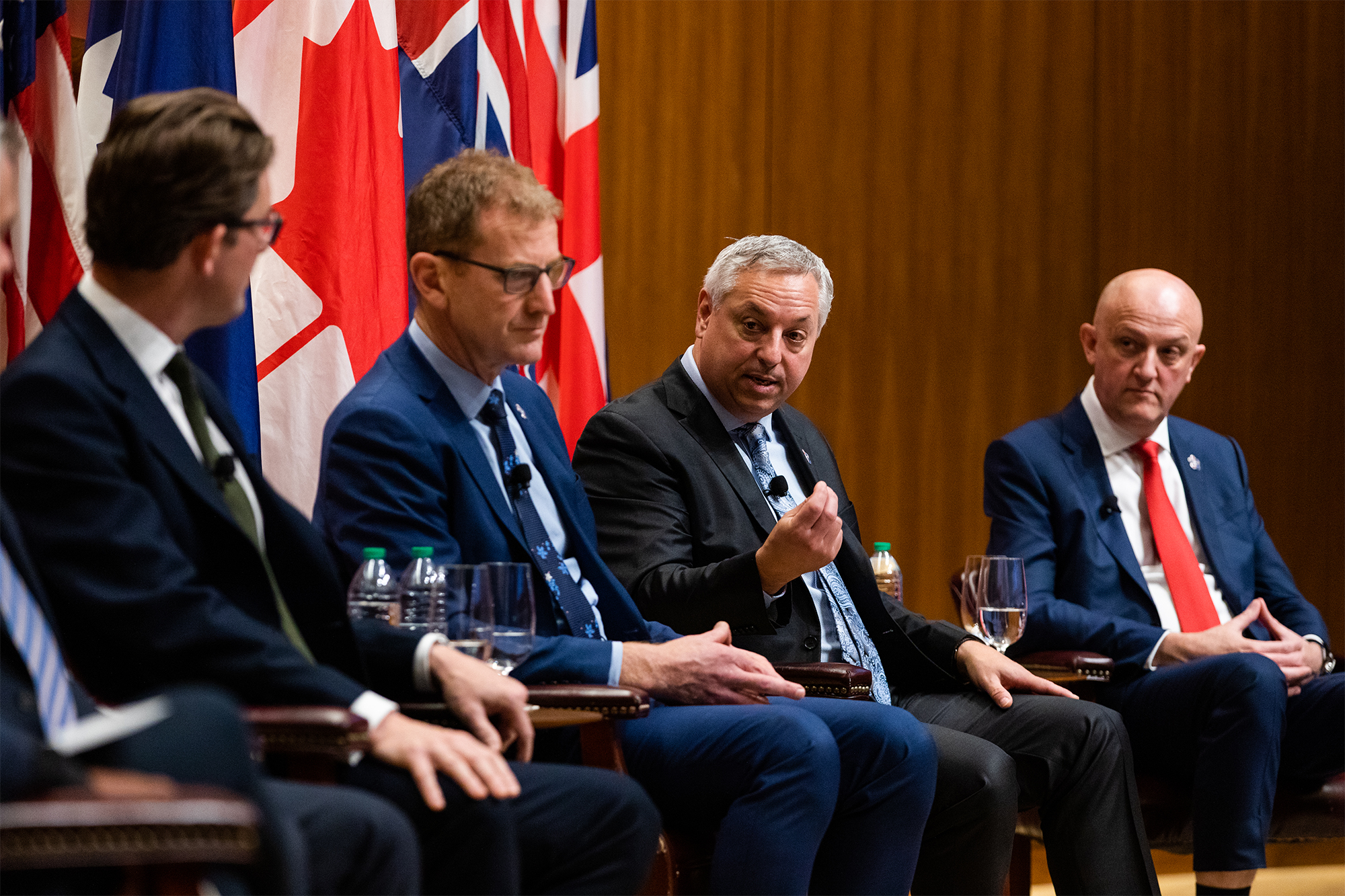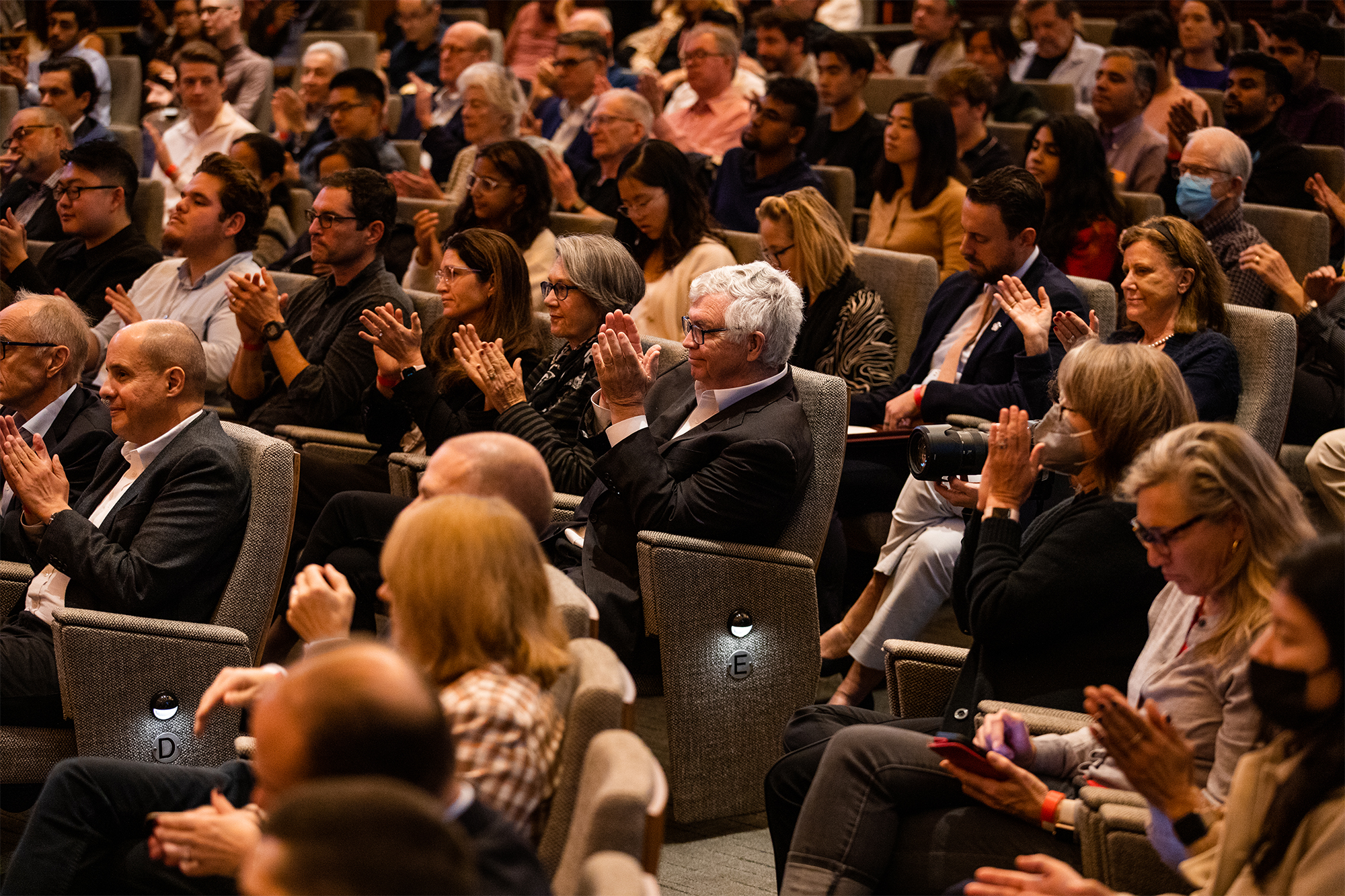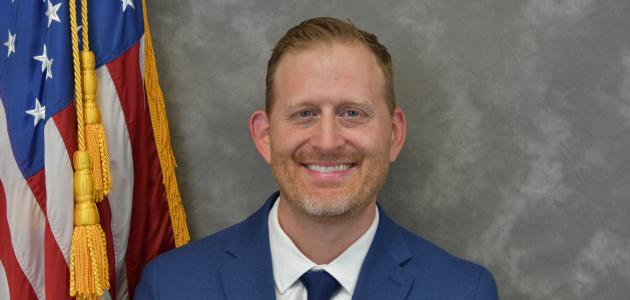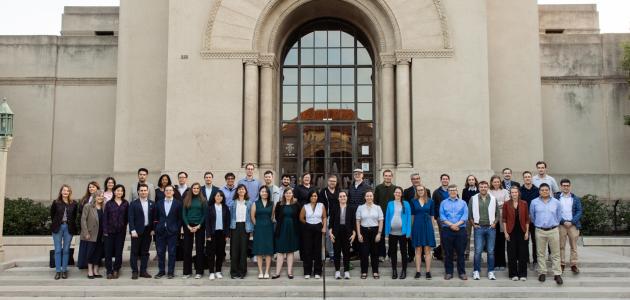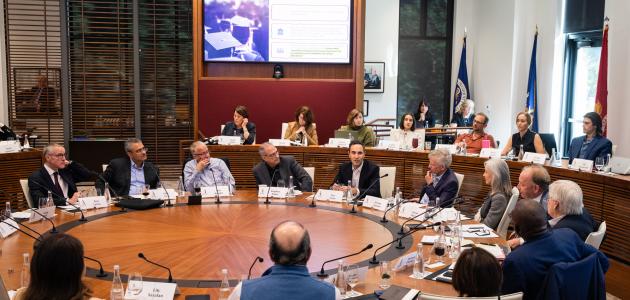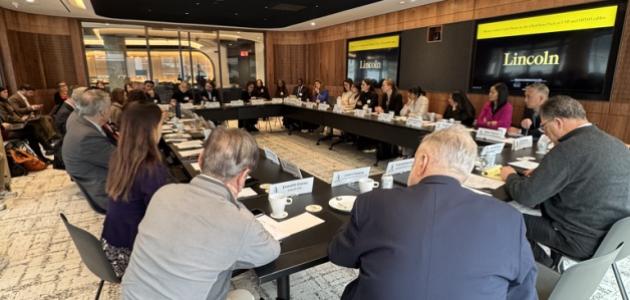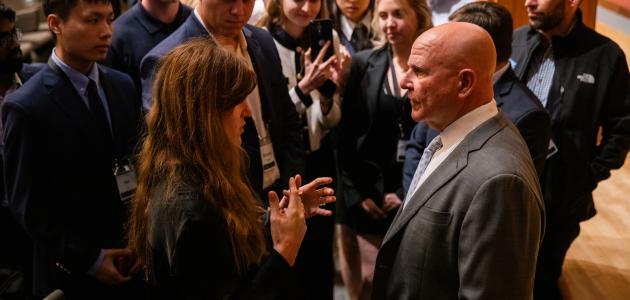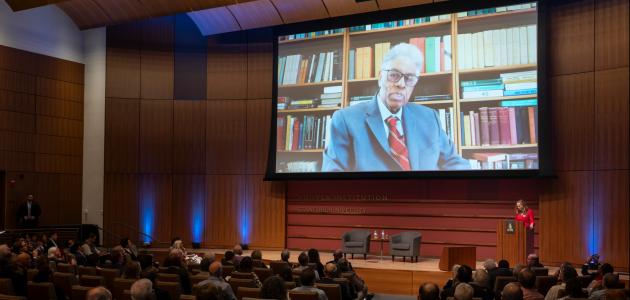Hoover Institution (Stanford, CA) – In what FBI director Christopher Wray described as an “unprecedented” occasion, the internal security chiefs of the United States, United Kingdom, Canada, Australia, and New Zealand convened for a public conversation with Hoover Institution director Condoleezza Rice on Tuesday about how to best address threats posed by China to technological innovation in their respective societies and economies. During their visit, the officials also met with academic and industry partners in Silicon Valley.
Together, Wray and the four other head officials represent the “Five Eyes,” an alliance born during World War II, in which the five democratic countries cooperate in intelligence gathering and exchanges to counter shared challenges.
Mike Burgess, director general of the Australian Security Intelligence Organization acknowledged that all governments conduct espionage operations to gain strategic advantages but stated that Beijing’s activities in recent years have been particularly egregious.
“The threat is that we have the Chinese government engaged in the most sustained, scaled, and sophisticated theft of intellectual property and acquisition of expertise that is unprecedented in human history,” said Burgess. “That is why we are together. And that is why I am—as a strategist security service head—calling that behavior out.”
According to Wray, Beijing hacks its competitors on a scale larger than that of all other nations combined. Further, China has pursued joint investments and transactions with Western businesses that are designed to make them more vulnerable to trade theft.
You May Not Be Interested in Geopolitics, but Geopolitics Is Interested in You
Ken McCallum, director-general of the British Security Service (MI5), highlighted that a great portion of technological innovation takes place at universities like Stanford and budding startup companies. It may not seem readily obvious that these institutions are targets of the types of theft that pose a national security concern, but they are exposed to risks similar to those of large government entities and corporations and need to be protected.
“If you are working at the cutting edge of technology today, you may not be interested in geopolitics, but geopolitics is certainly interested in you,” McCallum said.
Wray explained that the US government is worried about trade secrets in emerging technologies such as artificial intelligence (AI), in which the US is a global leader, landing in the hands of malign actors.
While the United States and other countries represented at the program are constrained by the rule of law in the application of AI, this is not the case for authoritarian regimes like the People’s Republic of China (PRC), who operate with little or no regard for norms and values of individual rights and freedom found in the West. The PRC collects personal and corporate data at a massive scale and covets more efficient means of strengthening its surveillance state and gaining a strategic military advantage over its foreign adversaries.
Improving Government Engagement with Industry and Academia
David Vigneault, director of the Canadian Security Intelligence Service, explained that although many tech leaders have been historically reluctant to work with governments in countering national security challenges, he has seen significant progress as of late.
“Each and every one of us are spending a lot more time working with what we called in the past nontraditional partners—universities, research centers, venture capital,” said Vigneault.
From Vigneault’s perspective, the unbridled power of Chinese president Xi Jinping, under whom Communist Party operatives have brazenly stolen intellectual property and interfered in the elections of democratic countries, has motivated Canada’s private sector, who have an interest in maintaining a competitive business environment supported by the rule of law, to strengthen engagement with that country’s security institutions.
Andrew Hampton, director-general of the New Zealand Security Intelligence Service, said that for governments to advance partnerships with the private sector, they need to prove their value. For Hampton, the government brings the skill and knowledge of identifying and combating threats.
“When you get the balance right, agencies like ours bringing our national security expertise to the table and the private sector with their scale and impact, when it works well, it is very impressive,” said Hampton, adding, “National security has to be a team sport.”
Wray added that these partnerships are thriving in the United States, where insights and recommendations are flowing in both directions and the more sophisticated companies are conducting joint operations with the FBI to disrupt adversaries.
“We are coming in with the mindset of ‘We’re here to help you and help you protect yourself.’ But now more and more companies are starting to say to us, ‘We’ve got this great idea about how you can be even better at protecting us,’” Wray said. “That is the virtuous cycle that we are trying to accelerate.”
Wray also explained that for universities, where a large portion of research is federally funded, American citizens have an interest in collaboration between government and the scholarly community to ensure that their tax dollars aren’t being used to benefit competitor countries.
China’s Talent Plans
Wray maintained that although one of the hallmarks of the American university is the virtue of openness and collaboration, officials in higher education should not fall “into the pitfalls of naivete.”
He explained that university officials should remain vigilant against recruits of the Communist Party’s “Thousand Talent Plan—students, scientists, researchers, and professors who are enlisted to steal trade secrets and transfer them back to China to develop technologies for both civilian and military use.
Wray stressed the distinction between agents working in the interest of the Communist Party and people of Chinese ethnicity, who in many cases—even when living in democratic countries such as the United States—can’t completely escape Beijing’s heavy-handed conduct.
The FBI director recalled an example of a student from China attending school in the United States who dared to speak positively about the Tiananmen Square protest and thereafter discovered that his family on the mainland received a visit from the state security service.
Wray stated that Beijing’s transnational repression of ethnic Chinese, particularly on the campuses of American universities underscores the difference between Chinese, as not the culprits, but in many cases the victims and the Chinese government which is “the biggest threat America faces.”







